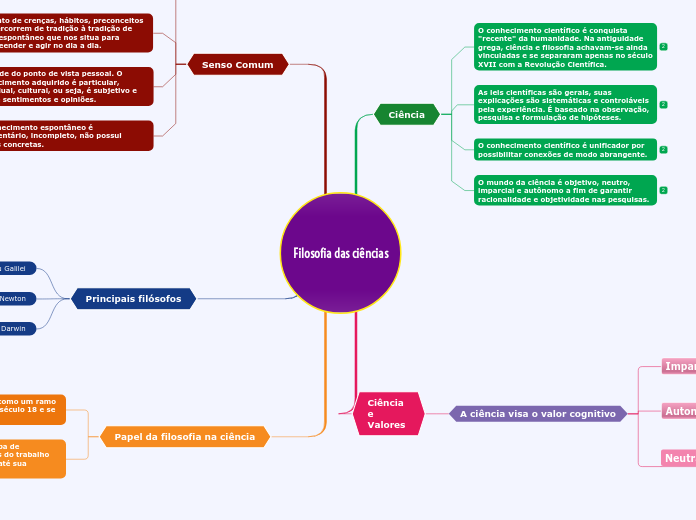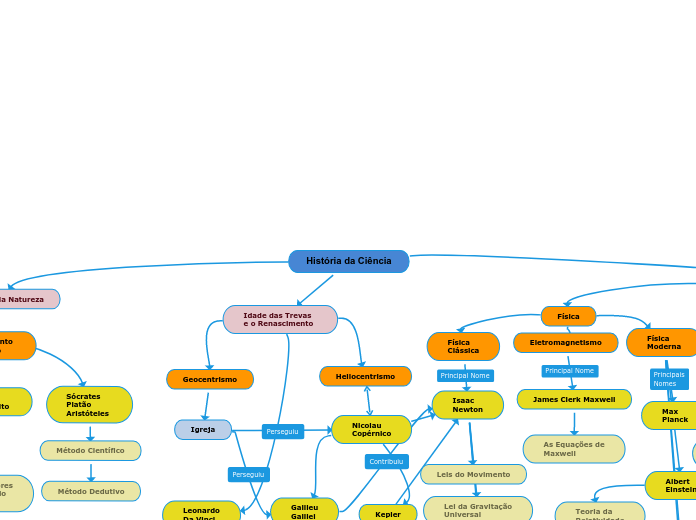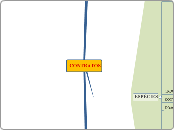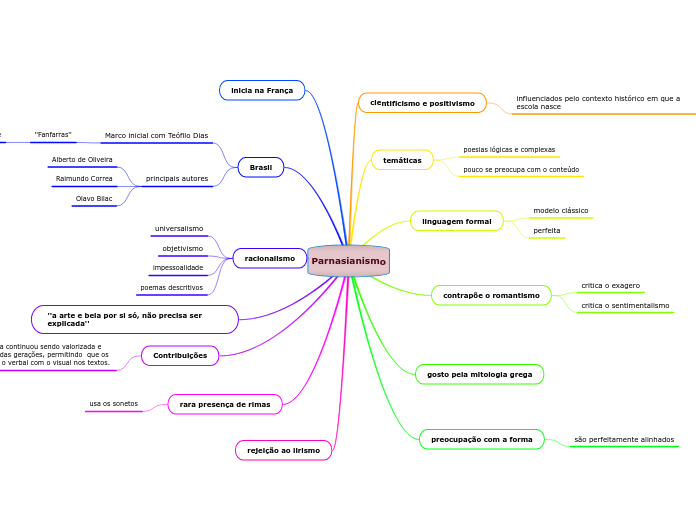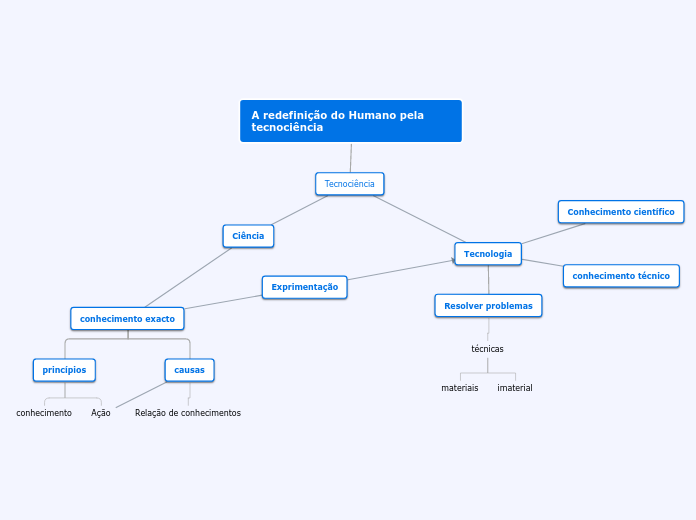Filosofia das ciências
The first division between continents was made by ancient Greek navigators, who named them 'landmass, terra firma'.
Generally classified by convention rather than any strict criteria, nowadays seven regions are regarded as continents from a geopolitical point of view.
Papel da filosofia na ciência
You can find on this continent:
- the world's largest river as per water volume, the Amazon.
- the highest volcanoes of the world -- Mt. Cotopaxi and Mt. Chimborazo.
- the country, Brazil, which is the largest coffee producer in the world.
- the second-highest mountain range in the world, the Andes.
A Filosofia da Ciência se ocupa de questionar todos os aspectos do trabalho científico: desde a pesquisa até sua utilidade.
The largest forest, which covers 30% of South America's total area, is famous for its biodiversity. It’s crisscrossed by thousands of rivers, including the powerful Amazon.
Name this forest as well as its type.
Type of forest
A Filosofia da Ciência surge como um ramo distinto do saber no final do século 18 e se consolida no século 19.
The world's highest uninterrupted waterfall can be found here.
Write down its name, height and the country in which you can find it.
Height
Principais filósofos
Charles Darwin
Isaac Newton
Galileu Galilei
Senso Comum
North America has five time zones and it is the only continent with every type of climate.
North America was named after the explorer Amerigo Vespucci and is also known as the 'New World'.
The world's largest sugar exporter among the seven continents - Cuba - also called the 'sugar bowl of the world' is located here.
O conhecimento espontâneo é fragmentário, incompleto, não possui provas concretas.
The specialty of some animals is they are found only in a particular region and nowhere else in the world. North America is home to many of such amazing animals.
Name at least 6.
Depende do ponto de vista pessoal. O conhecimento adquirido é particular, individual, cultural, ou seja, é subjetivo e reflete sentimentos e opiniões.
Native Americans have lived along this river and its tributaries for thousands of years. Most were hunter-gatherers, but some formed agricultural societies.
Formed from thick layers of the river's silt deposits, this river's embayment is one of the most fertile regions of the United States; steamboats were widely used in the 19th and early 20th centuries to ship agricultural and industrial goods.
Name this river.
Length
Conjunto de crenças, hábitos, preconceitos que percorrem de tradição à tradição de modo espontâneo que nos situa para compreender e agir no dia a dia.
O senso comum é formado por hábitos, preconceitos e tradições
The world's largest freshwater lake by surface area and the third-largest freshwater lake by volume can be found here. It provides a route for the transportation of iron ore, as well as grain and other mined and manufactured materials.
Large cargo vessels called lake freighters, as well as smaller ocean-going freighters, transport these commodities across this lake.
Name this lake.
Subtópico
Lake type
Ciência e Valores
Asia is the world's largest continent of the seven continents in size, as it covers one-third of the earth's surface.
It includes 50 countries, and it is the most populated continent, 60% of the total population of the Earth lives here.
A ciência visa o valor cognitivo
Name as many as you can out of the 48 countries located in Asia.
Write down the capitals too.
Neutralidade
Não deve atender nenhum outro valor além do cognitivo
Autonomia
Depende da possibilidade de independência das investigações, ou seja, as instituições científicas deveriam estar livres de pressões externas.
Imparcialidade
Consiste em aceitar como científicas apenas teorias que passaram por certos padrões de avaliação
Ciência
Europe is separated from Asia by the Ural mountains and the Caspian Sea.
It is surrounded by water on three sides: Mediterranean Sea in the south, Atlantic Ocean in the west, and the Arctic Ocean in the north.
Three-fourth of the world's potatoes grow in Europe.
O mundo da ciência é objetivo, neutro, imparcial e autônomo a fim de garantir racionalidade e objetividade nas pesquisas.
Europe has many exceptional animals, birds, and reptiles with unique methods of staying and hunting.
Name at least 4 of them.
Name
O conhecimento científico é unificador por possibilitar conexões de modo abrangente.
Europe is a large region, with several major rivers that connect its many countries. There are five primary rivers in Europe, and one of them flows through 10 countries, more than any other river in the world.
Name these rivers.
River's name
As leis científicas são gerais, suas explicações são sistemáticas e controláveis pela experiência. É baseado na observação, pesquisa e formulação de hipóteses.
Europe is one of the smallest continents, yet it is home to some of the largest mountain ranges.
About 20% of the total landmass of the continent is considered mountainous.
Name the 5 longest mountain ranges in Europe.
Mountains' name
O conhecimento científico é conquista "recente" da humanidade. Na antiguidade grega, ciência e filosofia achavam-se ainda vinculadas e se separaram apenas no século XVII com a Revolução Científica.
The most beautiful cities in the world can be found in Europe. History, architecture, arts, and famous cuisine is representative almost to each country.
Out of 51 countries how many you can name?
And how many capitals?
Country
Czech Republic - Prague
